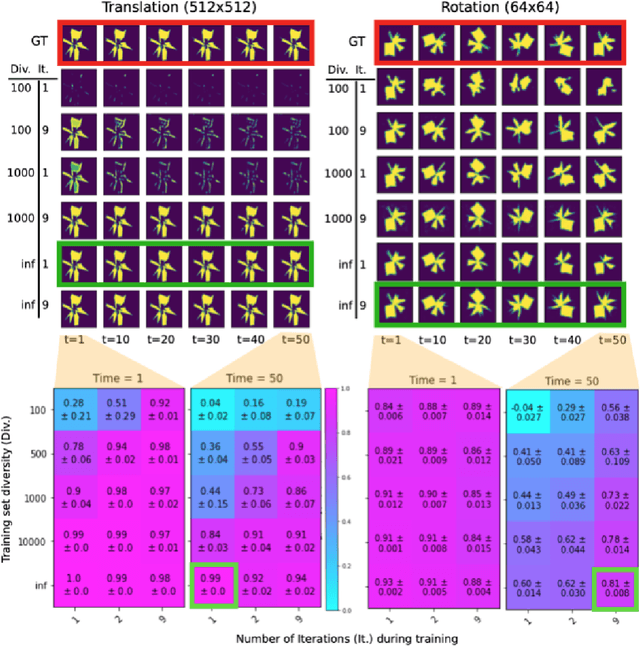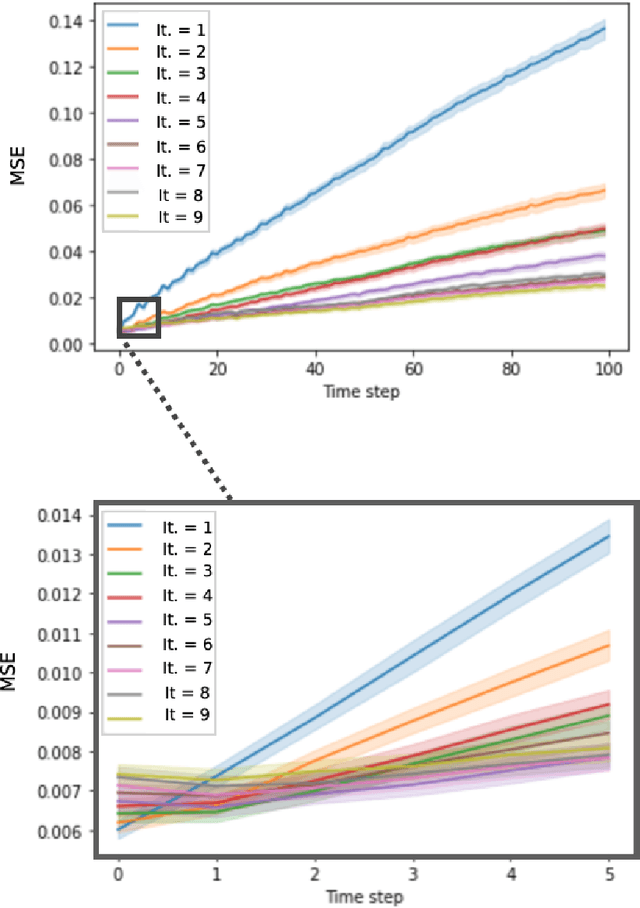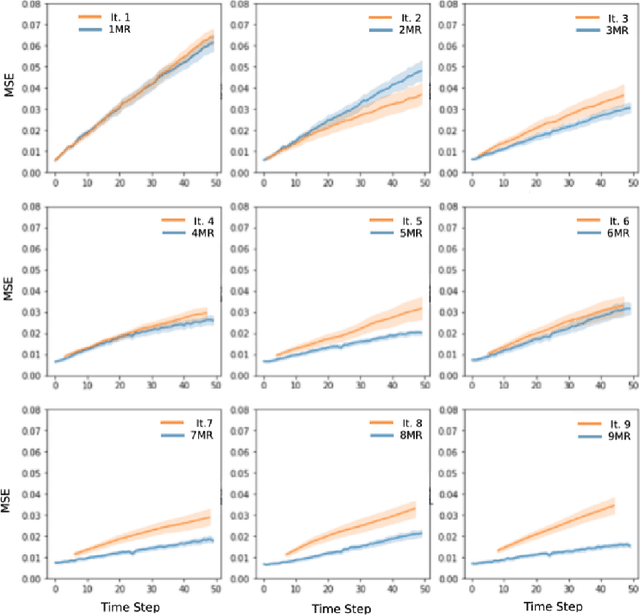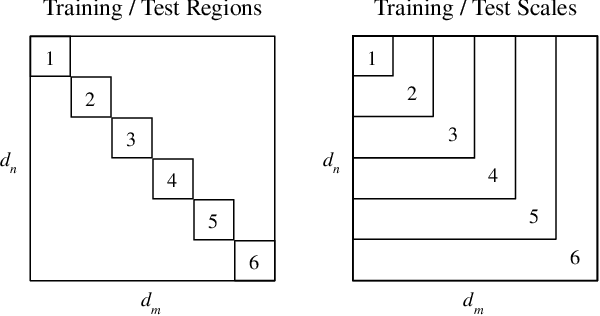Zachary Dulberg
Learning Canonical Transformations
Nov 17, 2020


Abstract:Humans understand a set of canonical geometric transformations (such as translation and rotation) that support generalization by being untethered to any specific object. We explore inductive biases that help a neural network model learn these transformations in pixel space in a way that can generalize out-of-domain. Specifically, we find that high training set diversity is sufficient for the extrapolation of translation to unseen shapes and scales, and that an iterative training scheme achieves significant extrapolation of rotation in time.
Learning Representations that Support Extrapolation
Jul 09, 2020



Abstract:Extrapolation -- the ability to make inferences that go beyond the scope of one's experiences -- is a hallmark of human intelligence. By contrast, the generalization exhibited by contemporary neural network algorithms is largely limited to interpolation between data points in their training corpora. In this paper, we consider the challenge of learning representations that support extrapolation. We introduce a novel visual analogy benchmark that allows the graded evaluation of extrapolation as a function of distance from the convex domain defined by the training data. We also introduce a simple technique, context normalization, that encourages representations that emphasize the relations between objects. We find that this technique enables a significant improvement in the ability to extrapolate, considerably outperforming a number of competitive techniques.
 Add to Chrome
Add to Chrome Add to Firefox
Add to Firefox Add to Edge
Add to Edge